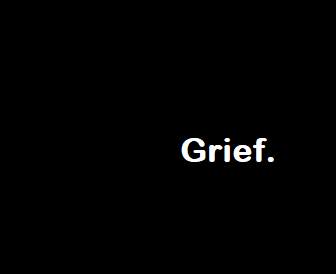페이지 정보
본문

Grief
Good
afternoon everyone.
Thank you for listening to me this day. I decided to connect this podcast of mine with the tragic event that happened in Korea earlier this month. No. I still do not want to politicize the event. Or blame someone. I already covered in my recent story in this website the things that we can do during a stampede. For this podcast, I want to address the grief that people who experience loss, and what we can do when we are stuck in such a state.
Grief is okay. It is a part of us being humans and loving others. But we know how easy it is to be just stuck there. Crying every day. Losing sleep. Not wanting to do anything. Or maybe drowning oneself to anything, just to forget. In YouTube Channel called “Cinema Therapy”, they discussed about an animated movie about grief. Big Hero Six. They noted about one possible response of a person to grief, which is detachment from anything. We just try not to care about anything even our previous dreams, for we think that caring only leads to pain. As can be seen also in the movie adaptation of The Hobbit, a character cried out as she held the lifeless body of her loved one, asking why does love hurt. The response she got was that it hurts because it’s true. But back to Cinema Therapy once again, they talked about how we always want to stay sad after the death of a loved one, and one theory proposed was that we feel that if we become happy, we are betraying the person we loved and lost.
But they also talked about the need to face the hurt in order to heal, and realize that what other way to honor the dead than to go on with our lives and realize the better versions of ourselves. The protagonist of Big Hero Six may have lost his big brother, but in the end, with the help of his friends and the memories left, he moved on and found his own way of being a better person. Live and be free. Live.
(Original podcast was deleted, so please excuse me for a not updated script.)
Recorded by Jess Deytiquez
December 14, 2022
Script
Good afternoon everyone. Thank you for listening to me this day. I decided to connect this podcast of mine with the tragic event that happened in Korea earlier this month. No. I still do not want to politicize the event. Or blame someone. I already covered in my recent story in this website the things that we can do during a stampede. For this podcast, I want to address the grief that people who experience loss, and what we can do when we are stuck in such a state. Grief is okay. It is a part of us being humans and loving others. But we know how easy it is to be just stuck there. Crying every day. Losing sleep. Not wanting to do anything. Or maybe drowning oneself to anything, just to forget. In YouTube Channel called “Cinema Therapy”, they discussed about an animated movie about grief. Big Hero Six. They noted about one possible response of a person to grief, which is detachment from anything. We just try not to care about anything even our previous dreams, for we think that caring only leads to pain. As can be seen also in the movie adaptation of The Hobbit, a character cried out as she held the lifeless body of her loved one, asking why does love hurt. The response she got was that it hurts because it’s true. But back to Cinema Therapy once again, they talked about how we always want to stay sad after the death of a loved one, and one theory proposed was that we feel that if we become happy, we are betraying the person we loved and lost. But they also talked about the need to face the hurt in order to heal, and realize that what other way to honor the dead than to go on with our lives and realize the better versions of ourselves. The protagonist of Big Hero Six may have lost his big brother, but in the end, with the help of his friends and the memories left, he moved on and found his own way of being a better person. Live and be free. Live. (Original podcast was deleted, so please excuse me for a not updated script.)
첨부파일
-
grief.m4a (4.5M)
0회 다운로드 | DATE : 2022-12-14 09:48:55
